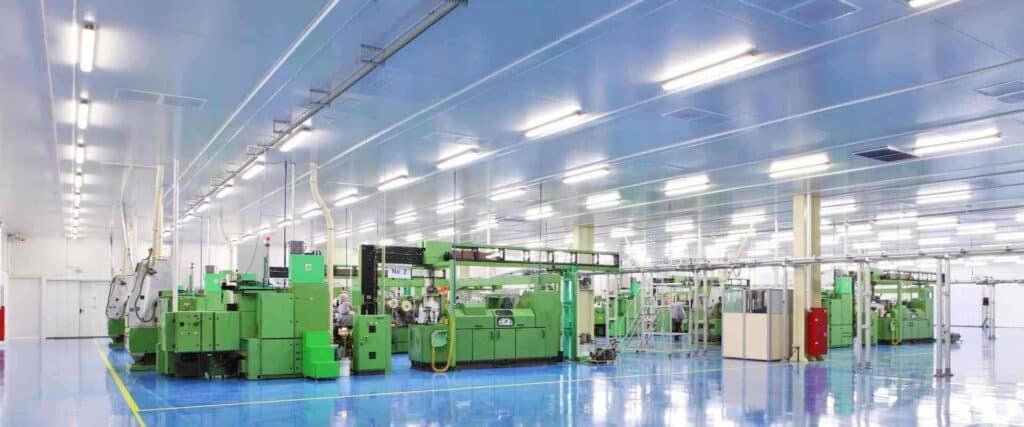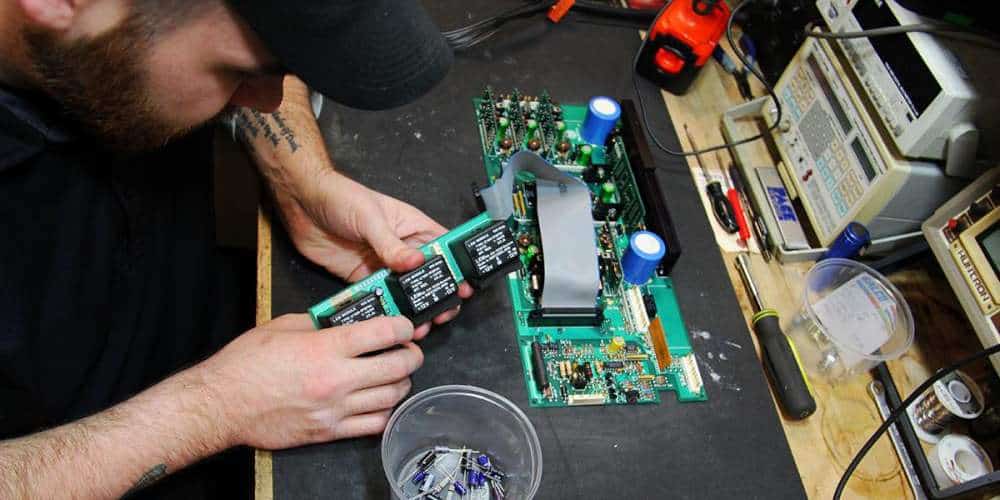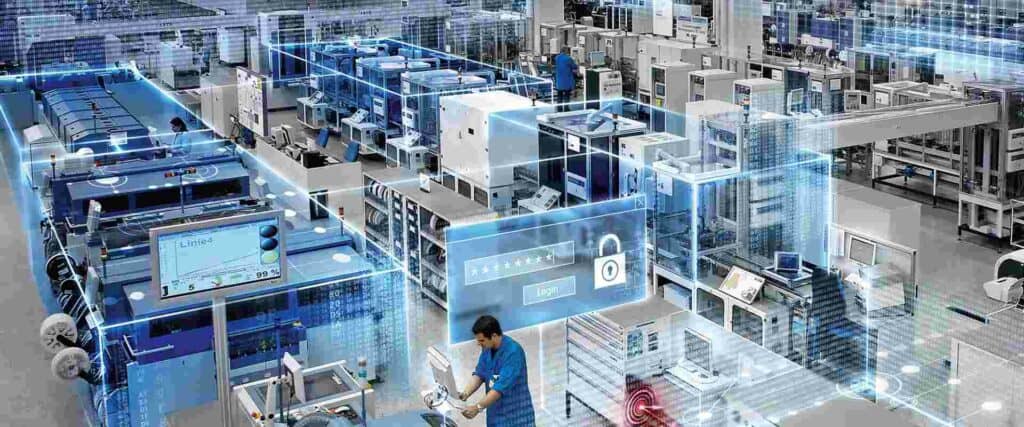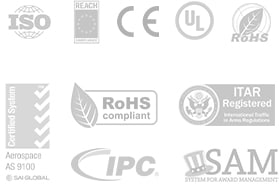Appliances, electrical, and electronics manufacturing is a vast industry that plays a significant role in our daily lives. From refrigerators and washing machines to smartphones and laptops, these products have become an essential part of our routine. The industry has been growing steadily, thanks to the increasing demand for these products worldwide.
The appliances, electrical, and electronics manufacturing industry is a complex network of manufacturers, suppliers, distributors, and retailers. The manufacturers design and produce the products, while the suppliers provide the raw materials and components necessary for the manufacturing process. The distributors and retailers then bring the products to the market, making them available for consumers to purchase. The industry is highly competitive, with manufacturers constantly striving to create innovative products that meet the changing needs of consumers.
As technology continues to advance, the appliances, electrical, and electronics manufacturing industry is poised for even more growth and innovation. With the increasing demand for smart home devices, electric vehicles, and renewable energy solutions, the industry is likely to see a surge in demand in the coming years. As consumers become more environmentally conscious, manufacturers are also exploring ways to create products that are eco-friendly and sustainable. Overall, the appliances, electrical, and electronics manufacturing industry is a dynamic and exciting field that has a significant impact on our daily lives.

Overview of Appliances Electrical and Electronics Manufacturing
Appliances electrical and electronics manufacturing is a vital sector of the economy, responsible for producing a wide range of products that are used in homes, businesses, and industries. This sector includes the production of electrical appliances such as refrigerators, air conditioners, washing machines, and televisions, as well as electronic devices such as smartphones, computers, and gaming consoles.
The appliances electrical and electronics manufacturing industry is constantly evolving, with new technologies and innovations being introduced regularly. The industry is driven by consumer demand for more efficient, reliable, and affordable products, as well as the need for businesses to stay competitive by adopting the latest technologies.
One of the key challenges facing the industry is the need to balance innovation with sustainability. As consumers become more environmentally conscious, manufacturers are under increasing pressure to reduce the environmental impact of their products. This has led to the development of more energy-efficient appliances and electronics, as well as the use of sustainable materials and manufacturing processes.
The appliances electrical and electronics manufacturing industry is a major contributor to the global economy, generating billions of dollars in revenue each year. It is also a significant employer, providing jobs for millions of people around the world. With the continued growth of the industry, it is expected to play an increasingly important role in shaping the future of technology and innovation.
Key Players in the Industry
The appliances electrical and electronics manufacturing industry is a highly competitive market, with several key players dominating the sector. These companies are known for their innovative products, cutting-edge technology, and strong brand recognition. Here are some of the major players in the industry:
-
Samsung Electronics Co., Ltd. – A South Korean multinational electronics company, Samsung is a leading manufacturer of appliances and electronics. The company offers a wide range of products, including refrigerators, washing machines, air conditioners, and televisions. Samsung is known for its innovative designs and advanced technology, such as its smart home appliances and 8K televisions.
-
LG Electronics Inc. – Another South Korean electronics company, LG is a major player in the appliances and electronics industry. The company offers a wide range of products, including refrigerators, washing machines, air conditioners, and televisions. LG is known for its focus on energy efficiency and eco-friendly products, such as its line of solar-powered air conditioners.
-
Whirlpool Corporation – An American multinational manufacturer of home appliances, Whirlpool is one of the largest players in the industry. The company offers a wide range of products, including refrigerators, washing machines, dryers, and dishwashers. Whirlpool is known for its focus on innovation and technology, such as its smart home appliances and connected appliances.
-
Haier Group Corporation – A Chinese multinational home appliances and consumer electronics company, Haier is a major player in the industry. The company offers a wide range of products, including refrigerators, washing machines, air conditioners, and televisions. Haier is known for its focus on innovation and technology, such as its smart home appliances and its line of eco-friendly products.
-
Electrolux AB – A Swedish multinational home appliance manufacturer, Electrolux is a major player in the industry. The company offers a wide range of products, including refrigerators, washing machines, dryers, and vacuum cleaners. Electrolux is known for its focus on sustainability and eco-friendly products, such as its line of energy-efficient appliances.
Overall, these key players in the appliances electrical and electronics manufacturing industry are known for their innovative products, advanced technology, and strong brand recognition. As the industry continues to evolve, these companies will likely remain at the forefront of innovation and technology in the years to come.
Global Market Trends

The global market for appliances, electrical, and electronics manufacturing is expected to witness steady growth in the coming years. The market is driven by several factors, including increasing demand for energy-efficient products, technological advancements, and rising disposable income of consumers in developing countries.
One of the major trends in the global market is the growing popularity of smart appliances. The increasing adoption of smartphones, tablets, and other smart devices has led to the development of smart appliances that can be controlled remotely. These appliances are equipped with sensors and software that enable them to communicate with other devices, providing users with a seamless experience.
Another trend in the market is the increasing focus on sustainability. Consumers are becoming more aware of the impact of their purchases on the environment, and are therefore demanding more eco-friendly products. Manufacturers are responding to this trend by developing products that are energy-efficient, recyclable, and made from sustainable materials.
The Asia-Pacific region is expected to dominate the global market for appliances, electrical, and electronics manufacturing in the coming years. The region is home to several emerging economies, including China and India, which are witnessing rapid urbanization and industrialization. This has led to a surge in demand for appliances, electrical, and electronics products in the region.
In conclusion, the global market for appliances, electrical, and electronics manufacturing is poised for steady growth in the coming years. The increasing demand for smart appliances, focus on sustainability, and growth in emerging economies are expected to drive the market forward.
Technological Advancements in Appliances Electrical and Electronics Manufacturing
In recent years, technological advancements have significantly impacted the appliances electrical and electronics manufacturing industry. With the rise of the Internet of Things (IoT), smart appliances are becoming more common, allowing consumers to control and monitor their appliances remotely. Additionally, advancements in artificial intelligence (AI) and machine learning have led to the development of appliances that can learn user preferences and adjust settings accordingly.
One area that has seen significant technological advancements is in the manufacturing process itself. Automation and robotics have become increasingly prevalent, allowing for faster and more efficient production. This has led to reduced costs and increased productivity, ultimately resulting in more affordable appliances for consumers.
Another area of advancement is in the materials used to manufacture appliances. New materials such as graphene and carbon nanotubes offer improved conductivity and durability, leading to more efficient and longer-lasting appliances. Additionally, advancements in battery technology have allowed for the development of cordless appliances with longer battery life, such as cordless vacuums and power tools.
Overall, technological advancements in appliances electrical and electronics manufacturing have led to more efficient and affordable appliances for consumers. As technology continues to advance, we can expect to see even more exciting developments in the industry.
Challenges Faced by the Industry

The appliances, electrical, and electronics manufacturing industry faces several challenges that affect its growth and profitability. Some of the significant challenges include:
1. Rapid Technological Changes
The industry is characterized by rapid technological changes, which require manufacturers to keep up with the latest trends and innovations. This can be a significant challenge for small and medium-sized enterprises (SMEs) that may not have the resources to invest in research and development. Moreover, the cost of upgrading production equipment and processes can be prohibitive, making it difficult for some manufacturers to remain competitive.
2. Increasing Competition
The appliances, electrical, and electronics manufacturing industry is highly competitive, with many players vying for market share. This competition has been intensified by the entry of new players, particularly from emerging economies, who offer lower-priced products. This has put pressure on established manufacturers to reduce their prices, which can affect their profit margins.
3. Supply Chain Disruptions
The industry relies on complex supply chains that involve multiple suppliers and distributors. Any disruption in the supply chain, such as natural disasters, geopolitical instability, or transportation disruptions, can affect the timely delivery of products and increase costs. This can have a significant impact on manufacturers, particularly those that rely on just-in-time delivery.
4. Regulatory Compliance
The appliances, electrical, and electronics manufacturing industry is subject to numerous regulations, including environmental regulations, product safety regulations, and labor laws. Compliance with these regulations can be time-consuming and expensive, particularly for SMEs, which may not have the resources to hire compliance experts or invest in compliance technology.
5. Changing Consumer Preferences
Consumer preferences are continually evolving, and manufacturers need to keep up with these changes to remain relevant. This can be a significant challenge, particularly for established manufacturers that may have a rigid product development process. Moreover, consumers are becoming increasingly conscious of the environmental impact of products, which is leading to a demand for eco-friendly products.
In conclusion, the appliances, electrical, and electronics manufacturing industry faces several challenges that require manufacturers to be innovative, flexible, and responsive to changing market conditions. Manufacturers that can adapt to these challenges are likely to succeed in this highly competitive industry.
Environmental Impact of Appliances Electrical and Electronics Manufacturing

The manufacturing of appliances, electrical, and electronic products has a significant impact on the environment. The production process involves the use of raw materials, energy, and water, which can result in the generation of waste and emissions. Here are some of the environmental impacts of appliances, electrical, and electronics manufacturing:
Energy Consumption
The manufacturing of appliances, electrical, and electronic products requires a significant amount of energy. The production process involves the use of electricity, natural gas, and other forms of energy, which can lead to the emission of greenhouse gases. Energy consumption during the manufacturing process can be reduced by using energy-efficient equipment and adopting sustainable manufacturing practices.
Raw Materials
The manufacturing of appliances, electrical, and electronic products requires the use of raw materials such as metals, plastics, and chemicals. The extraction of these raw materials can have a significant impact on the environment. It can lead to deforestation, soil erosion, and water pollution. To minimize the environmental impact, manufacturers can use recycled materials and adopt sustainable sourcing practices.
Waste Generation
The manufacturing process of appliances, electrical, and electronic products generates a significant amount of waste. The waste includes scrap metal, plastic, and electronic components. Proper disposal of this waste is essential to minimize the environmental impact. Manufacturers can adopt recycling programs and implement waste reduction measures to reduce the amount of waste generated.
Emissions
The manufacturing process of appliances, electrical, and electronic products can result in the emission of greenhouse gases, volatile organic compounds (VOCs), and other pollutants. These emissions can contribute to air pollution and climate change. Manufacturers can reduce emissions by using renewable energy sources, implementing pollution control measures, and adopting sustainable manufacturing practices.
In conclusion, the manufacturing of appliances, electrical, and electronic products has a significant impact on the environment. Manufacturers can reduce the environmental impact by adopting sustainable manufacturing practices, using energy-efficient equipment, and implementing waste reduction measures.

